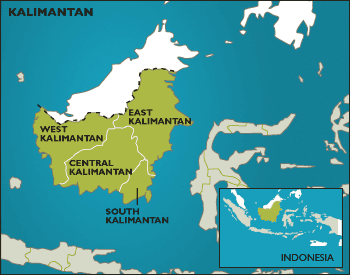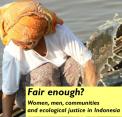Down to Earth No.84, March 2010
An interview with Erma Ranik
In 2003 we interviewed Erma Ranik for the DTE newsletter. At the time, Erma, a volunteer for the indigenous peoples' alliance in West Kalimantan (AMA Kalbar), was in London on a series of mini-internships facilitated by DTE, as part of a joint programme with the national indigenous peoples' alliance, AMAN.
Seven years on, Erma now sits in the DPD (Dewan Perwakilan Daerah - the Regional Representatives Council) and lives partly in Jakarta and partly in West Kalimantan. DTE got in touch to ask how things have changed.



